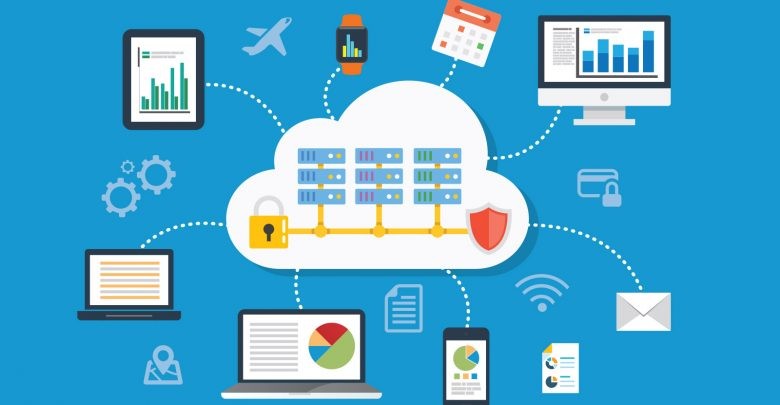Securing Your Accounting Enterprise: Strategies for Protection and Business Continuity
In today’s dynamic business landscape, safeguarding your accounting enterprise isn’t just about protecting financial data; it’s about ensuring the continuity of operations amidst various threats. From cybersecurity risks to natural disasters, accounting firms face numerous challenges that can disrupt their services and jeopardize client trust. In this comprehensive guide, we’ll delve into ten effective strategies to fortify your accounting enterprise, mitigate risks, and ensure seamless business continuity.
Understanding the Threat Landscape
Cybersecurity Threats: Defending Against Data Breaches
Cyberattacks pose a significant threat to accounting firms, with hackers constantly devising new techniques to infiltrate networks and steal sensitive information. Implementing robust cybersecurity measures, such as encryption protocols and multi-factor authentication, is essential for safeguarding client data and maintaining trust.
Physical Security Measures: Protecting Office Premises
Securing your physical workspace is equally vital, as unauthorized access can compromise confidential information and disrupt operations. Installing surveillance cameras, access control systems, and alarm systems can deter intruders and enhance overall security.
Disaster Preparedness Planning: Ensuring Resilience
Natural disasters and unforeseen events can strike without warning, potentially causing extensive damage to infrastructure and disrupting business operations. Developing a comprehensive disaster preparedness plan, including evacuation procedures and data backup strategies, is crucial for minimizing downtime and ensuring business continuity.
Building a Robust IT Infrastructure
Cloud-Based Solutions: Enhancing Flexibility and Scalability
Embracing cloud-based accounting software offers numerous benefits, including enhanced flexibility, scalability, and accessibility. By migrating critical applications and data to the cloud, accounting firms can streamline operations, improve collaboration, and mitigate the risk of data loss.
Data Encryption and Access Controls: Safeguarding Sensitive Information
Encrypting sensitive data and implementing strict access controls are fundamental steps in protecting confidential client information. By restricting access to authorized personnel and encrypting data both in transit and at rest, accounting firms can minimize the risk of unauthorized disclosure or data breaches.
Regular Software Updates and Patch Management
Keeping software applications and operating systems up to date is essential for addressing known vulnerabilities and mitigating security risks.
Training and Education Initiatives
Employee Awareness Training: Promoting Cybersecurity Awareness
Human error remains one of the leading causes of security breaches, underscoring the importance of ongoing employee training and awareness programs. By educating staff about common cybersecurity threats, phishing scams, and best practices for data protection, accounting firms can empower their employees to recognize and respond to potential risks effectively.
Simulated Phishing Exercises: Testing Preparedness
Conducting simulated phishing exercises allows accounting firms to assess their employees’ susceptibility to social engineering attacks and identify areas for improvement. By simulating real-world phishing scenarios and providing immediate feedback, organizations can strengthen their defense mechanisms and cultivate a culture of cybersecurity awareness.
Continual Professional Development: Staying Ahead of Emerging Threats
The cybersecurity landscape is constantly evolving, with new threats emerging regularly. Encouraging employees to pursue ongoing professional development opportunities, such as cybersecurity certifications and workshops, enables them to stay abreast of the latest trends, techniques, and best practices in the field.
Collaboration and Partnerships
Engaging Third-Party Security Providers: Leveraging Expertise
For accounting firms lacking the in-house resources or expertise to manage cybersecurity effectively, partnering with reputable third-party security providers can be invaluable. These providers offer specialized expertise, advanced threat detection capabilities, and round-the-clock monitoring services, enhancing the firm’s overall security posture.
Participation in Information Sharing Networks
Joining information-sharing networks and industry-specific forums enables accounting firms to stay informed about emerging threats, vulnerabilities, and best practices. By collaborating with peers and sharing threat intelligence, organizations can collectively strengthen their defenses and better protect against common adversaries.
Engagement with Regulatory Bodies and Compliance Standards
Compliance with industry regulations and standards is paramount for accounting firms entrusted with sensitive financial data. Maintaining adherence to frameworks such as GDPR, PCI DSS, and SOC 2 demonstrates a commitment to data privacy and security, fostering trust among clients and regulatory authorities.
Frequently Asked Questions
- How can I assess the cybersecurity readiness of my accounting firm?
- What are the potential consequences of a data breach for accounting firms?
- Is cloud-based accounting software secure?
- What steps can I take to recover data in the event of a disaster?
- How often should employee cybersecurity training be conducted?
- Are there any industry-specific regulations that accounting firms need to comply with?
Conclusion
Securing your accounting enterprise requires a multifaceted approach encompassing technological solutions, employee training, collaboration, and regulatory compliance. By implementing the strategies outlined in this guide, accounting firms can fortify their defenses, mitigate risks, and ensure business continuity in the face of evolving threats.




